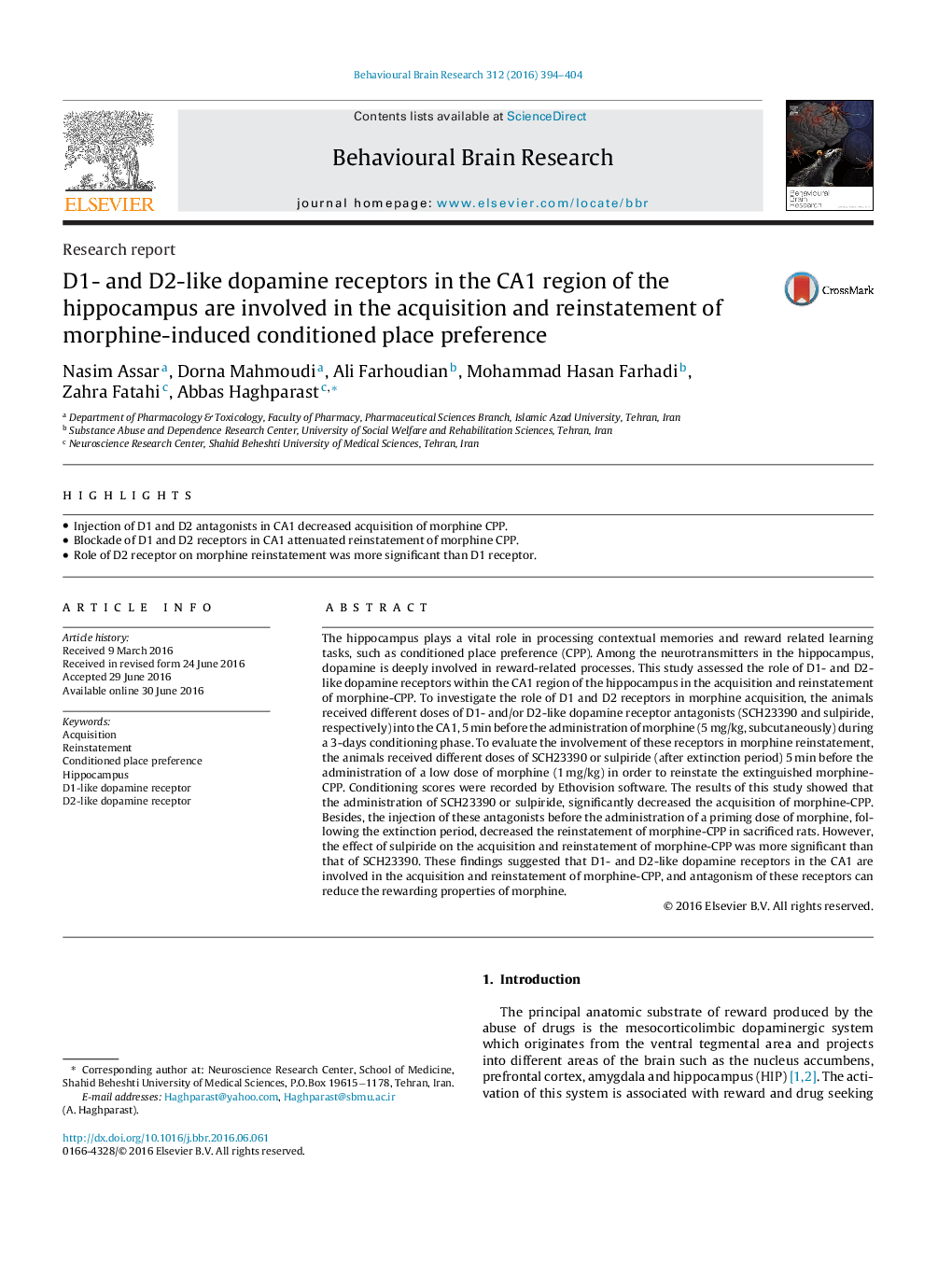| کد مقاله | کد نشریه | سال انتشار | مقاله انگلیسی | نسخه تمام متن |
|---|---|---|---|---|
| 4312091 | 1612921 | 2016 | 11 صفحه PDF | دانلود رایگان |

• Injection of D1 and D2 antagonists in CA1 decreased acquisition of morphine CPP.
• Blockade of D1 and D2 receptors in CA1 attenuated reinstatement of morphine CPP.
• Role of D2 receptor on morphine reinstatement was more significant than D1 receptor.
The hippocampus plays a vital role in processing contextual memories and reward related learning tasks, such as conditioned place preference (CPP). Among the neurotransmitters in the hippocampus, dopamine is deeply involved in reward-related processes. This study assessed the role of D1- and D2-like dopamine receptors within the CA1 region of the hippocampus in the acquisition and reinstatement of morphine-CPP. To investigate the role of D1 and D2 receptors in morphine acquisition, the animals received different doses of D1- and/or D2-like dopamine receptor antagonists (SCH23390 and sulpiride, respectively) into the CA1, 5 min before the administration of morphine (5 mg/kg, subcutaneously) during a 3-days conditioning phase. To evaluate the involvement of these receptors in morphine reinstatement, the animals received different doses of SCH23390 or sulpiride (after extinction period) 5 min before the administration of a low dose of morphine (1 mg/kg) in order to reinstate the extinguished morphine-CPP. Conditioning scores were recorded by Ethovision software. The results of this study showed that the administration of SCH23390 or sulpiride, significantly decreased the acquisition of morphine-CPP. Besides, the injection of these antagonists before the administration of a priming dose of morphine, following the extinction period, decreased the reinstatement of morphine-CPP in sacrificed rats. However, the effect of sulpiride on the acquisition and reinstatement of morphine-CPP was more significant than that of SCH23390. These findings suggested that D1- and D2-like dopamine receptors in the CA1 are involved in the acquisition and reinstatement of morphine-CPP, and antagonism of these receptors can reduce the rewarding properties of morphine.
Journal: Behavioural Brain Research - Volume 312, 1 October 2016, Pages 394–404